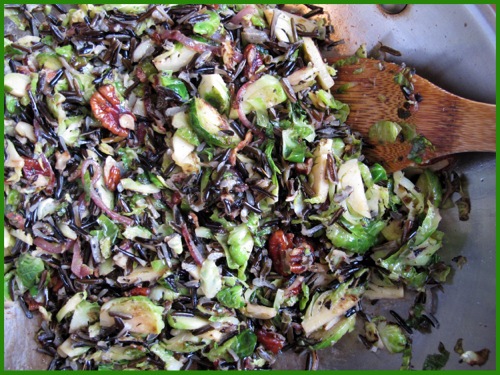
5 Foods You Should Always Buy Organic
Friends – an interesting article from the good folks at Prevention Magazine.
A new report pinpoints the most pesticide-laden produce
By Emily Main
Trying to shave a few pennies off your grocery bill without exposing yourself to toxic chemicals? Just in time for farmer’s-market season comes the Shopper’s Guide to Pesticides in Produce, a new report from the nonprofit Environmental Working Group (EWG) analyzing U.S. Department of Agriculture tests for pesticide residues on fruits and vegetables.
First the bad news: It doesn’t look like pesticide residues are getting any lower, says Sonya Lunder, MPH, senior analyst at EWG. Sixty-eight percent of produce samples tested showed detectable levels of pesticides, a number that has remained relatively constant over the past six years. Eleven percent tested positive for more than five different pesticides.

© 2014 Group G Enterprises, LLC
Genetically Modified Foods: What You Need to Know
And after five years of analyzing data, says Lunder, the Environmental Protection Agency isn’t doing as much as they should in restricting pesticide use in a way that protects public health. “The EPA is aimed at stopping the really egregious levels of pesticides,” she says. But even low-level exposure to some pesticides—which contain chemicals that interfere with estrogen and testosterone levels—has been linked to infertility, thyroid problems, diabetes, other metabolic disorders, and certain forms of cancer.
Unfortunately, pesticides can make their way to your dinner table in more ways than just food because chemicals used on farms routinely wind up in municipal water supplies that aren’t equipped to remove them. “The best way to ensure you’re getting minimal pesticide exposure is to buy organic,” she says. Not only are you eating residue-free food, but you’re supporting a farming system that protects your water supply both now and in the future.
Of course, if you’re on a budget—and who isn’t?—you may have to be a little choosy. Thankfully, EWG’s annual guide provides information on the most heavily contaminated foods, which to you should mean the foods you should always buy organic. Take this list with you next time you head to the store.
1. Nectarines Every sample of imported nectarines tested positive for pesticide residues, the USDA found, and the average imported nectarine contained more pesticides by weight, than any other food.
2. Bell peppers As a category, 88 different pesticides were found on sweet bell peppers, the highest of any vegetable. A single bell pepper tested positive for 15 different pesticide residues, the highest of any single sample.
3. Leafy greens The most toxic class of pesticides—called organophosphates—are commonly used on leafy greens like kale and collards. “These are chemicals that were originally intended for chemical warfare,” says Lunder, who adds that their use is highly restricted in agriculture. Still, studies continue to find that even low-level exposure to organophosphates can seriously interfere with your hormones and lead to lower IQs among children exposed to them through food.
4. Grapes More pesticides are used on grapes than any other fruit. Combined, the various samples of grapes contained 64 different pesticides.
5. Baby food New to this year’s list, baby food was tested by the USDA for the very first time. Based on EWG’s analysis of their findings, the agency found high levels of organophospates, as well as a pesticide known to cause cancer.
In addition to those, EWG recommends you always buy organic for the following 10, as well: apples, celery, peaches, strawberries, spinach, lettuce, cucumbers, domestic blueberries, potatoes and green beans. You can also check out the EWG’s full list and rankings for both the “Dirty Dozen” and “Clean 15.”



